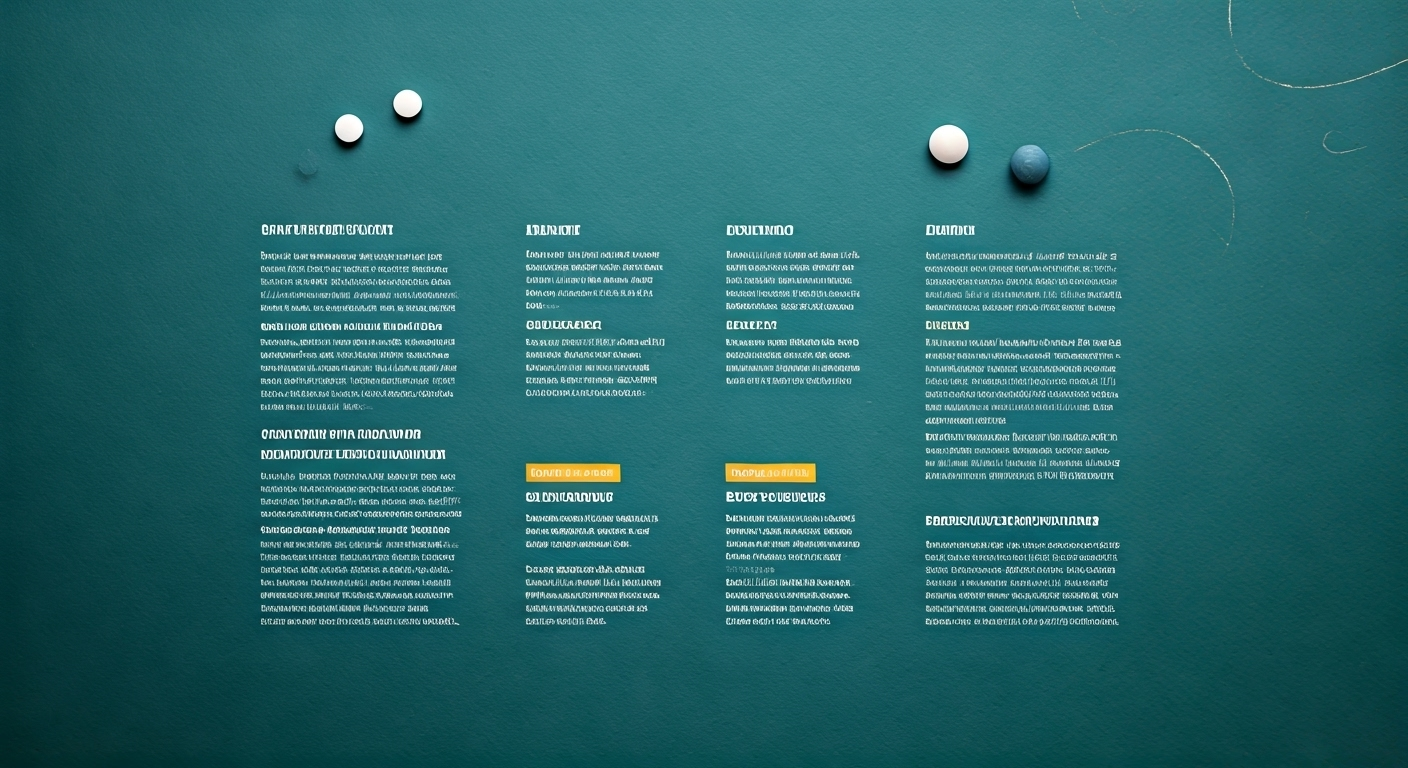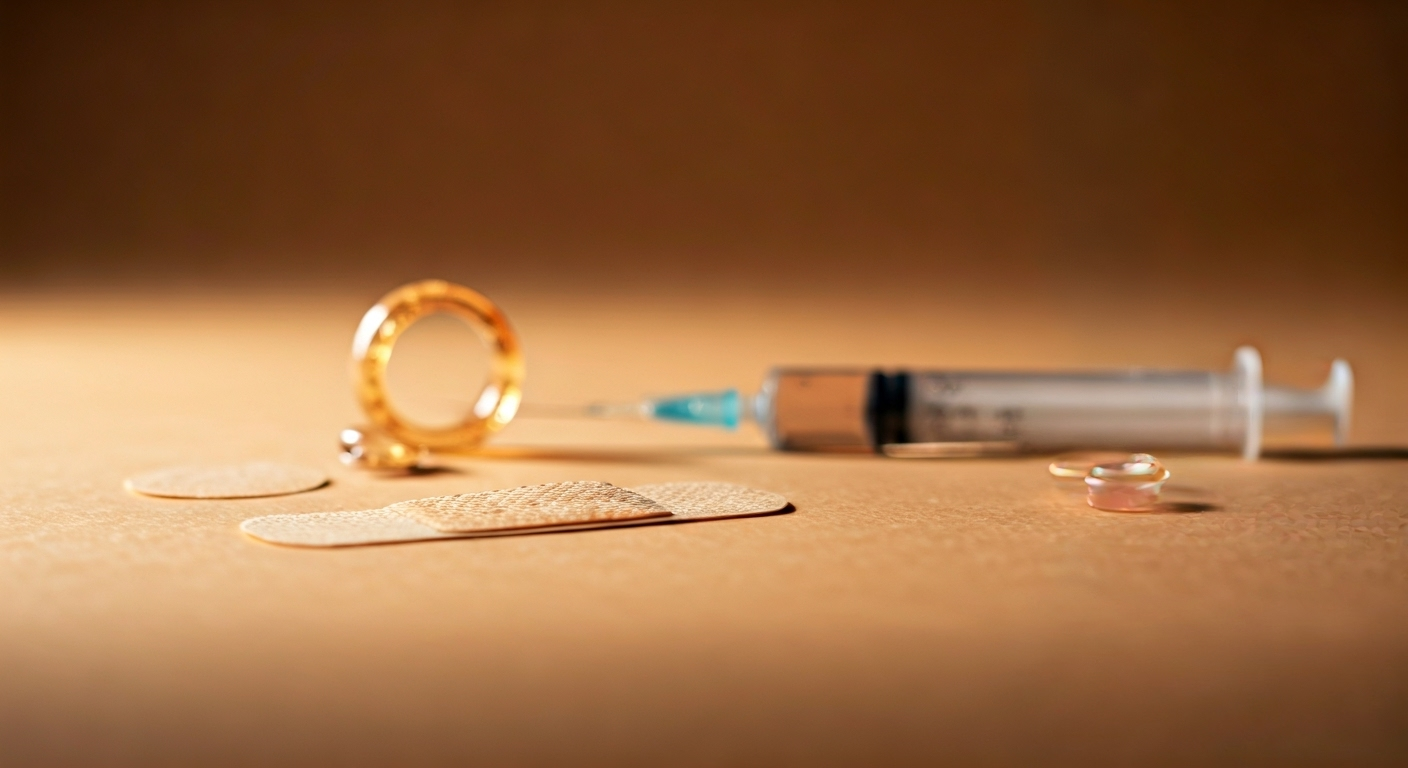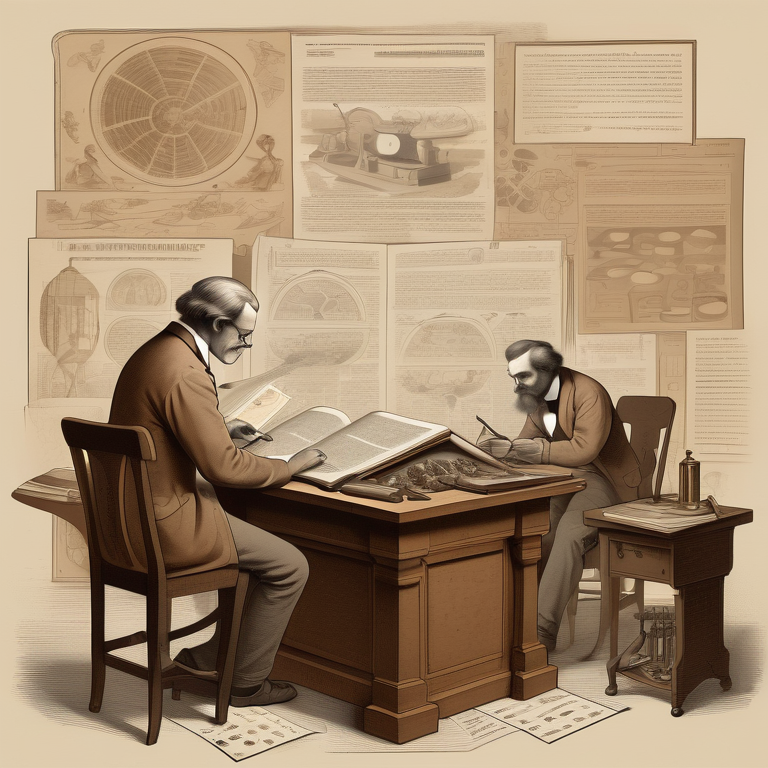Do Birth Control Pills Kill Libido? Explore Your Options

Key Highlights
- Hormonal contraceptives, including the contraceptive pill, patch, and ring, can influence female sexual desire, with effects ranging from reduced sex drive to heightened libido.
- Scientific studies indicate mixed results, with some individuals experiencing changes in sexual behaviour, while others report no impact or even improved sexual satisfaction.
- The contraceptive pill comes in various types, like combined hormonal contraceptives and progestin-only options, potentially affecting libido differently.
- Non-hormonal methods such as the copper IUD are less likely to affect hormonal balance but may still influence sexual wellbeing.
- Practical strategies, including lifestyle changes and consulting healthcare professionals, can help mitigate side effects and preserve sexual interest.
- Significant changes in libido warrant exploring alternative birth control methods or seeking professional guidance from a GP or sexual health nurse.
Introduction
Birth control methods, especially hormonal contraceptives, play a big part in looking after your reproductive health. But have you thought about how these can affect your sex drive? Hormonal contraceptives like the pill work very well for pregnancy prevention, but they can change your sexual desire. Some people may notice a lower female sexual desire, while others might see an increase. It is important to know about the link between contraception and your sex life. This blog talks about the facts and answers, so you can get good information. It helps you make the right choices for your sexual health and contraceptive use.
Understanding Libido and Birth Control: The Basics

Libido, often called sex drive, can go up and down. This can happen because of hormones, feelings, or things that cause stress. When you start using birth control, especially the types with hormones, you may notice these changes more. Birth control helps people take care of their reproductive health, but some people do say they notice changes in their sexual function or female sexual desire.
The link between contraceptive use and sex drive is not simple. Things like changes in hormone levels, mood swings, and the way each person’s body works can change your experience. No matter if you use hormonal or non-hormonal birth control, it is important to keep an eye on any changes in your sexual interest.
What is libido and how is it measured?
Libido is all about the want or interest a person has for sexual activity. It covers not just sexual desire but also how you feel close to someone, physical pull, and things in your body like hormones. Furthermore, overall physical health can also affect libido. People often mix up libido with sexual interest, but there is more to it. Things like the way you feel about someone or how much stress you have can change how strong your want is.
It is not easy to measure libido. This is because it changes for each person and can shift depending on what is going on. Most of the time, experts use self-check forms where you answer questions about how often you have sexual activity, how happy you are with it, and if you have both sexual desire and interest. One example is the Female Sexual Function Index (FSFI). This test asks about things like arousal, want, and if you reach orgasm.
The idea of sexual function is bigger than just libido. It also means looking at things the body does, like feeling excited and reaching orgasm. If any of these parts change, that can lead to changes in sexual desire, your interest in sexual activity, and how you act in bed.
Overview of birth control pills and their popularity in the UK
The contraceptive pill is still one of the most common ways to prevent pregnancy in the UK and around the world. Oral hormonal contraceptives are not only good for pregnancy prevention but also help with things like keeping menstrual cycles regular. They can also help people who have symptoms from polycystic ovary syndrome.
In the UK, many people choose the combined hormonal contraceptive pill. People trust it because it is reliable and can do more than just prevent pregnancy. Good studies show that women in the United States also pick this method for birth control. They like both the reproductive help and the other health benefits.
A lot of people count on oral contraception, but some worry about mood swings and changes in their sex drive. Even with these possible adverse effects on sexual health, many feel it is just easier to use the pill. Still, it’s important to know all about how hormonal contraceptives can affect you so you can make good choices about contraceptive use.
How Birth Control Pills Affect Hormones

Birth control pills have synthetic hormones like oestrogen and progestin. These hormones stop ovulation and control your menstrual cycle. But, they also start hormonal changes that can affect your sexual desire.
Some people get side effects as their oestrogen and progestin levels change. You might have mood swings or changes in how much you want sex. These effects are different for everyone, but learning about how hormonal contraception works with your natural cycle can help you know why your sexual desire may change.
The role of oestrogen and progestin in contraceptives
Oestrogen and progestin are the main parts of many hormonal contraceptives, like oral birth control. Oestrogen helps control ovulation and keeps cycles regular. Progestin makes cervical mucus thicker, which stops sperm from getting through. This makes birth control work better.
The goal of these hormonal contraceptives is pregnancy prevention, but they also affect other things in the body. These hormones can make testosterone levels go down. Testosterone is important for female sexual function and sexual desire. When there is less testosterone, some people may have lower sexual desire. Still, this effect is not the same for every person who uses hormonal contraception.
For some people, using birth control helps keep hormones more steady. This can make sexual satisfaction and mood better. Combined oral contraceptives, which have both oestrogen and progestin, may help with health issues that happen with menstrual cycles. As a result, this can help improve sexual wellbeing, too.
How hormonal changes can impact sexual desire
Hormonal changes from birth control can affect your sex drive in more ways than one. The chance is there for testosterone levels to drop due to these lab-made hormones. Because of this, you or someone else might notice a drop in sexual interest.
Mood swings are common with hormonal changes and can add to sexual dysfunction. If you feel down, depressed, or anxious, it can be hard to want to be close. The things you usually do to boost sexual interest may not always work then.
But the news is not always bad. Not every change to your hormones will lower your sex drive. Some people find relief from painful periods after starting hormonal birth control. When you feel better, your mood can lift, and so can your sexual satisfaction. For some, this can make their libido go up after starting contraceptive use.
Does Birth Control Lower Sex Drive? The Evidence

There are mixed findings on how birth control affects your sex drive. Some clinical trials and reviews show that more than half of people do not see any change in their sexual behavior. About 20% even say they have a higher sex drive when using it.
But, if you have a reduced sex drive or notice other sexual side effects, it could be because of the adverse effects from hormonal contraception. Looking at what research says can help you understand these issues. It can also help you pick a birth control method that better fits your way of living.
Research findings on libido and contraceptive use
Research into contraceptive use shows different results for sexual desire. A systematic review looked at over 100 studies. This review found that 60% of people using contraceptives had no change in sexual desire. About 20% said it went up. Another 10% noticed it went down.
Clinical trials also show that the type of contraceptive can affect how much people enjoy sex, influencing sexual acceptability. Combined hormonal contraceptives often helped people feel better about their sex life, especially for those dealing with mood swings or issues caused by hormones.
|
Study Type |
Participants Reporting No Change |
Participants Experiencing Increased Libido |
Participants Reporting Decrease |
|---|---|---|---|
|
Systematic Review |
60% |
20% |
10% |
|
Clinical Trial Data |
Cases Dependent on Hormonal Sensitivity |
Improved via Copper IUDs and Vaginal Rings |
Lower Testosterone May Influence |
This knowledge helps us know more about how hormones affect people. It also shows that everyone is different when it comes to contraceptive use and sexual desire.
Factors influencing individual differences in sex drive
Many things can change a person’s sex drive. For females, birth control can have a big effect on sexual desire because it changes hormones. The different stages of the menstrual cycle and problems with reproductive health matter too.
Mental health is important. Feeling stress, having mood swings, or dealing with mental health issues can make someone lose interest in sex.
How people get along with their partners plays a part as well. Good talks and being close to each other can shape how people think about sexual activity. There is often a mix of physical and emotional things at work that affect sexual interest and sex drive.
Types of Birth Control Pills and Their Impact on Libido

There are many types of birth control pills. Each one can change your sex drive in a different way and this is because of the hormones in them. Combined oral contraceptives have both estrogen and progestin. These can help to manage mood swings for some people and may even make sexual satisfaction better. But, progestin-only pills work in another way and may change testosterone levels. This might affect female sexual desire.
Each person can have their own response. Some people get less sex drive, while some notice their sexual function gets better sexual function. Knowing the difference between these pills can help you make good choices about birth control and sexual health. Understanding the effects of contraceptive use on things like reduced sex drive, sexual desire, and satisfaction is important for you and your health.
Combined oral contraceptive pills
The effect of combined oral contraceptive pills on female sexual desire is not the same for everyone. These hormonal contraceptives have both estrogen and progestin, so they can cause hormonal changes in the body. These changes may have an impact on sexual desire. Some women find more sexual satisfaction because their menstrual cycles become regular. Others notice a drop in sexual interest. This could be because of mood swings or changes in testosterone levels.
The way these oral contraceptive pills impact sexual function and sex life can also depend on other things. Mental health, lifestyle, and past experiences all have a big effect. So, each person may see different results when it comes to sexual desire and overall sexual satisfaction.
Progestin-only (mini-pill) options
Progestin-only options, often called mini-pills, have the synthetic hormone progestin. These pills are different from the combined ones because of what is in them. They can change female sexual desire in different ways. Some people get only small effects on sexual interest, and for some, it can change a bit more. Since these pills do not have estrogen, there may be fewer mood swings. This may also be good for mental health and lead to better sexual satisfaction. But everyone is different, so these hormonal changes do not work the same for all people. That is why it is important to get personal advice about which birth control is best. This helps you choose what is right for your sex life and takes care of your sexual desire and mental health.
Other Hormonal Contraceptives and Libido

The effects on sex drive can be very different for the many types of hormonal contraceptives. This includes more than just birth control pills. For example, the patch and the vaginal ring change the way hormones enter the body, and this can make female sexual desire change. Some people notice changes to their sexual function because of this. Injectable birth control, like Depo-Provera, might also lower sex drive for some. This may be because of changes in the body’s hormones and from mood swings. Knowing about these changes is important when thinking about which kind of contraception to use. It also helps you to understand what it could mean for your sexual health and your quality of life.
Contraceptive patch and vaginal ring
Both the contraceptive patch and vaginal ring are popular hormonal contraceptives. They can change female sexual desire in some people. These methods send hormones straight into the bloodstream. This can lead to mood swings or change how you feel about sex. Some people have less sexual desire with these contraceptives. Others may not notice any change. The way your body changes with hormones, and how this matches your menstrual cycle, can affect your sexual satisfaction and sexual function, and may also include potential adverse events. It is good to talk openly with your doctor about these things. This helps make sure the method you choose is good for your reproductive health and your sexual wellbeing.
Injectable contraception (Depo-Provera)
When you look at injectable contraception, such as Depo-Provera, you may see it has some big effects on sexual health and female sexual desire. This shot gives off progestin, which changes hormone levels. With these changes, it may also impact sex drive. Many people use Depo-Provera and get good pregnancy prevention. But, some people do see changes in their libido because of these hormone changes. A systematic review says not everyone reacts the same way. Some say their sexual interest goes down. It is important to notice these differences in how people feel. This helps improve quality of life and makes it easier to handle any adverse effects on sexual function. Talking about these things can help people make good choices about reproductive health.
Non-Hormonal Birth Control Methods: Effects on Sexual Wellbeing

Exploring non-hormonal birth control can give you a better idea of how it affects your sexual wellbeing. Many people say they have a steady sex drive when they use barrier birth control methods or devices like the copper IUD. These methods do not cause the ups and downs that can come with hormonal birth control pills. This means you may have more sexual satisfaction, and there is no risk of your sex drive going down.
Many users feel their sexual function gets better with these methods. They can have a higher interest in sex, because they do not get the side effects from hormones, such as mood swings or other bad reactions. When you give priority to your reproductive health and your own comfort, non-hormonal options can make your sex life better as a whole.
Copper IUD and sexual function
The copper IUD can change the way copper IUD users feel about sex in many ways. Some people say it makes their sex drive better. This is often because it does not have hormones, so people feel more at ease and happy during sex. There can also be fewer mood swings and changes in how you feel, which may help your sex drive stay steady. But, there could be some problems. Some people feel pain when the copper IUD goes in, or they may get a little sore. This can make sexual activity less fun for a short time. It is important for anyone thinking about this method of contraception to know these things so they can have a good sex life. Knowing what might happen can help people decide what works for their sexual function.
Condoms, diaphragms, and other barrier methods
Barrier methods, like condoms and diaphragms, give a different effect on sexual function and sexual interest. These methods work by making a physical barrier, so they help lower the worry of getting STIs or having a pregnancy you do not want. Because of this, people often feel better about their sex life and enjoy it more. The feeling of extra safety can make sexual interest and satisfaction better. Unlike hormonal contraceptives, barrier methods do not mess with your hormones. This means they usually do not cause problems like low interest in sex or sexual dysfunction. So, for many people, barrier methods help them have a healthier and more satisfying sex life.
Psychological Factors Affecting Libido While on Birth Control
Many things that happen in your mind can deeply affect your sexual desire if you use hormonal contraceptives. Stress and anxiety can cause mood swings. This, in turn, makes people feel less interested in sex and can lower sexual satisfaction. Also, problems with mental health may start a pattern of self-doubt. This often brings down sexual interest even more.
The way you and your partner talk to each other matters a lot, too. If you have open talks, it can help take away some worries. On the other hand, if there are problems in your relationship that are not solved, they can increase the feeling of low libido or lack of interest. It’s important to know about these mental and emotional factors. This helps you and your partner handle low libido in relation to contraceptive use and seek guidance from a mental health professional, helping both of you work toward a good sex life.
The role of stress, anxiety, and mood
A drop in sexual desire often starts with what is happening in your mind. The way you feel can play a big part in your sexual health. When you go through stress, your body makes more cortisol. This can upset your hormones and lower your sexual interest. If you have high anxiety, it can lead to a thing called hypoactive sexual desire disorder. This means you may not have much or any interest in sex at all.
Mood swings can also make things worse, especially if you use hormonal contraceptives. All these feelings and changes can make it hard to feel close to someone. This can get in the way of sexual satisfaction and pull down your overall quality of life.
Relationship dynamics and communication
Open and honest talk is key in a good relationship, especially when there are changes in sexual desire. It can be hard to talk about these things at first, but speaking up helps people feel close to each other and understand one another better. The two people should bring up the topic with care because hormonal contraceptives and birth control can play a big part in their sexual health and how happy they are with their sex life. Talking about what each person likes and needs helps build trust. This way, both can see how birth control may change their sexual interest. By making sure to talk about these things, couples can deal with changes in sexual desire and ways they act together.
Managing Libido Changes: What Can You Do?
To handle changes in libido that come from birth control, it is a good idea to talk with your doctor or another healthcare expert. You can also make some changes in your life to help. Regular exercise, finding ways to manage stress, and talking openly with your partner can boost your sexual wellbeing. These steps can also help make your relationship better overall.
Discussing concerns with your GP or sexual health nurse
It is important to talk openly with your GP or sexual health nurse if you notice any changes in your sex drive when using hormonal contraceptives. They can help you understand how different kinds of birth control, like combined or progestin-only pills, may affect your sexual desire. When you have these talks, be honest about your feelings and any changes you notice. This can help find out if the changes be from your lifestyle, hormones, or other reasons.
Do not be afraid to talk about these things. When you do, it can make your sexual health better and improve the quality of life for you. Knowing more about what is going on helps you take control. If you need help, reaching out is a good move for your well-being.
Lifestyle changes and holistic approaches
Making some changes to your daily habits can help improve your sexual health and sex drive. Regular exercise helps your body release endorphins, which make you feel good. This can help keep your mood up and may also balance some negative effects that come with hormonal contraception. Eating a balanced diet, especially one that has dark chocolate, is good for your sex drive and your overall health.
Holistic ways like mindfulness, yoga, and meditation help you relax and keep your stress levels down. Doing these things can help you feel more in tune with your body and your sexuality. Talking openly with your partner and focusing on emotional closeness will make sex life better, even if you are facing hormone changes.
Alternative Contraceptive Options for Those Concerned About Libido
Exploring different methods of contraception can help you find what fits best for your needs. If you worry about your sex drive, you might want to try a different birth control pill. Some people see good changes when they use lower-dose combined oral contraceptives, which may cut down on some hormone issues and help your sex life feel better. There are also non-hormonal choices like the copper IUD or barrier methods. These do not mess with your hormones, so your sex drive may not go down. All these methods can be good for pregnancy prevention. They also put attention on your sexual health and the way you feel when you choose your method of contraception.
Switching to a different pill formulation
Trying another pill can help if you notice changes in sexual desire while you are using hormonal contraceptives. Changing to a new pill can help get your hormones more balanced. This may help with any adverse effects, like trouble with your sex life or feeling bad about sexual health. For example, you might want to go from a combined oral contraceptive to a progestin-only pill. This can help lower mood swings and make your sex life better. It’s very important to talk with your healthcare provider before making any changes. They will know what is best for you and can give advice about your sexual health, reduced libido, or any problems you might have.
Exploring non-hormonal contraceptive choices
Non-hormonal birth control methods are good choices for people who worry about changes in sex drive. Some options, like the copper IUD, help with pregnancy prevention but usually do not change female sexual desire. These do not have the same hormone effects as regular birth control pills.
There are other choices too, like condoms and diaphragms. These are barrier methods and they do not use hormones. By using these, people can keep their natural sex drive and keep their sexual satisfaction.
Looking at these different options can help a lot with sexual health and quality of life. This lets people make choices that match what they want for their bodies and their lives.
Myths and Misconceptions About Birth Control and Sex Drive
There are many myths about birth control and its effect on sexual desire. This can cause a lot of confusion. Some people say that all hormonal contraceptives will lower your sexual desire. But that is not true for everyone, especially for those concerned about the possibility of pregnancy. People react in different ways to birth control. Many women do not notice any changes. Some may even feel an increase in sexual satisfaction.
Another common myth is that all methods of birth control are bad for a woman’s sexual function. In fact, many things can affect how the method of contraception works for a person. Your lifestyle and health are important. These things can make a big difference in how you feel about sex when you use birth control.
Common myths debunked
Many people have the wrong idea about birth control and how it affects sex drive. One common myth is that all hormonal contraceptives always lower your sexual desire in a big way. But the truth is, people react in many different ways. Some might even have an increase in sexual desire because of the type of birth control they use or their own health. Another wrong belief is that every type of birth control leads to sexual dysfunction. This is not true, since things like stress and your relationship with your partner can also make a big difference. It’s important to know what these ideas really mean and focus on the real facts about reproductive health.
Separating fact from fiction
Many people do not know the real facts about how the effects of hormonal contraceptives affect sexual desire. There is a common idea that the contraceptive pill always lowers libido. But this is not true for all. Each person can have a different experience. Things like hormonal changes, mental health that someone already has, and even personal beliefs can greatly shape sexual health.
Clinical trials show mixed results about the contraceptive pill and sexual interest. Some people may feel less sexual desire. Others say they notice no change, or they even enjoy more sexual satisfaction. Knowing that there is this wide range helps people see their reproductive health more clearly. This can help them feel more sure about the choices they make for their sexual health.
Conclusion
The link between birth control pills and sexual desire is different for each person. Many people notice changes in how much they want to have sex. This can be because of hormones or even things going on in the mind. Some find there is less interest in sex. That is why it is good to know what birth control can do to sexual health.
Talk with your doctor about any worries. This way, you can look at other ways to do birth control if you want. Talking about these things can help you feel better about your choices. It is important to put your sexual satisfaction and well-being first. When you make choices for reproductive health that fit your life and what you like, it can really help your quality of life. When you know more about it and make your own decisions, you get more control as you work on your sexual health.
Frequently Asked Questions
Can all birth control pills reduce libido, or just certain types?
Some people may notice a lower sex drive when they use birth control pills. But this does not happen to everyone. The effect can change based on the type of pill you use. Combined oral birth control pills are more likely to cause a drop in sex drive. Progestin-only pills seem to do this less often. The way you react to these pills depends on your own hormones and your health.
Is it safe to switch birth control if I notice a drop in sex drive?
If you notice a drop in your sex drive, it can be safe to switch your birth control method. It is a good idea to talk to your healthcare provider about this. You can discuss your own situation and talk about other ways to manage it, because people respond in different ways to birth control. Open and honest talks with your provider will help you find what works best for you.
Will my libido return to normal after stopping the pill?
After you stop taking the pill, your body may slowly start to bring back your sexual desire to the way it was before. But this can be different for each person. Things like hormones and your body’s own way of working will change how fast this happens. It is best to be patient and keep watch to see how your own body reacts during this time.
Are there herbal or natural remedies that help with libido loss?
Herbal and natural remedies like ginseng, maca root, and fenugreek may help boost libido. Some people use these to feel better in sexual health. Also, making lifestyle changes helps. You can try regular exercise and eat a balanced diet for good results. But, it is always best to talk with a healthcare provider before you start any new supplements.
Should I see a doctor if my sex drive changes after starting birth control?
If you see changes in your sex drive after you start using birth control, it is a good idea to talk to a doctor. The doctor can look at what is happening, find out any possible causes, and help you figure out what to do next. They may suggest changing your birth control or give you other options to support your sex drive and your health.





